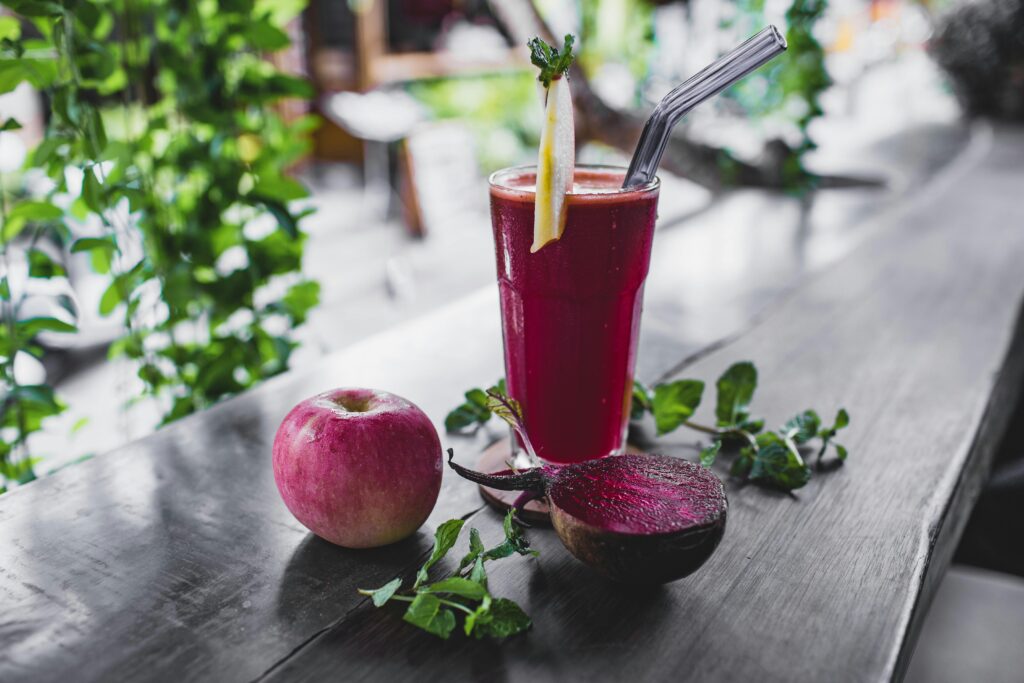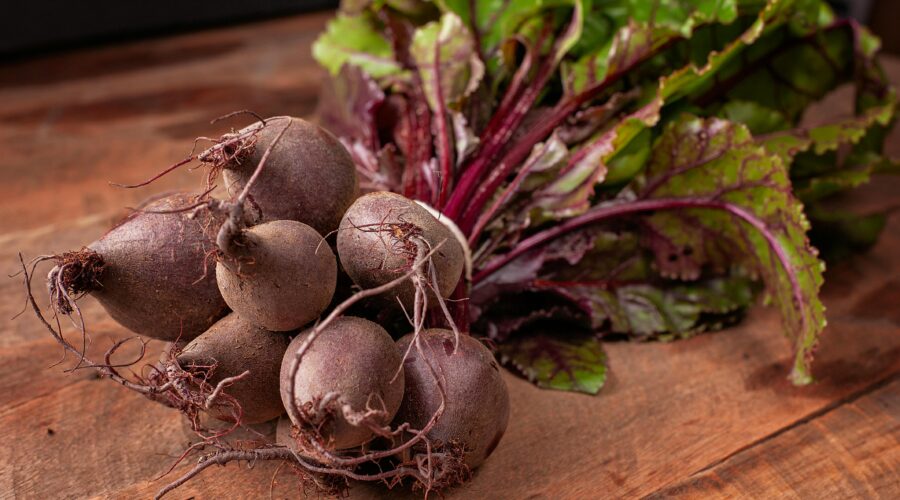Beetroot—nature’s humble, ruby-hued powerhouse—is making a splash in kitchens and health circles everywhere. Whether you’re a veggie lover, a health enthusiast, or just someone curious about this vibrant root, this engaging and lighthearted blog is your ultimate guide. In the next 3000 words, we’ll explore everything from the origins of beetroot and its fascinating nutritional profile to the myriad of health benefits it brings to the table (quite literally!). So grab a glass of beet-infused juice or a crisp salad, and join us on this beet-tastic journey!
Before we dive into the nitty-gritty of beetroot’s health benefits, let’s set the stage with a little history lesson. Beetroot’s story starts in the ancient fields of the Mediterranean, where early cultivators discovered a root that was not only edible but also packed with vibrant color and unique flavor. In ancient Rome and Greece, beetroot was often used for its medicinal properties and as a natural dye. Over the centuries, this versatile vegetable spread across Europe and eventually the world, adapting to countless cuisines and culinary traditions along the way.
Today, beetroot is celebrated in diverse cultures. From the classic Eastern European borscht to modern smoothie bowls, beetroot’s robust flavor and eye-catching color have earned it a permanent spot in both traditional recipes and innovative new dishes. This rich heritage adds a layer of charm to every beet dish, making your culinary experience not just healthy but also historically intriguing.

The Nutritional Breakdown: What Makes Beetroot a Superfood?
At first glance, beetroot might seem like a simple vegetable. However, beneath its unassuming exterior lies a treasure trove of nutrients that make it a true superfood. Let’s break down the key components that contribute to beetroot’s health benefits:
1. Vitamins and Minerals Galore
Beetroot is loaded with essential vitamins and minerals. It’s a great source of:
- Folate (Vitamin B9): Crucial for DNA synthesis and repair, and especially important for pregnant women.
- Manganese: Aids in bone formation and metabolism.
- Potassium: Helps regulate blood pressure and maintain fluid balance.
- Vitamin C: Boosts your immune system and aids in collagen production.
- Iron: Vital for transporting oxygen in your blood and preventing fatigue.
These nutrients work together harmoniously to support various bodily functions, making beetroot an excellent addition to your daily diet.
2. Fiber: The Digestive Dynamo
Fiber is one of the unsung heroes in beetroot. A high-fiber diet supports digestive health by promoting regular bowel movements and preventing constipation. It also aids in maintaining a healthy weight and stabilizing blood sugar levels. With fiber as part of its nutritional arsenal, beetroot ensures that your gut is as happy as your taste buds.
3. Antioxidants: The Fight Against Free Radicals
Beetroot is rich in antioxidants such as betalains, which give it that deep, alluring red color. Antioxidants are like the body’s personal cleanup crew, neutralizing harmful free radicals that can damage cells and contribute to chronic diseases. By incorporating beetroot into your meals, you’re arming your body with a natural defense system against oxidative stress.
4. Nitrates: Nature’s Performance Enhancer
Perhaps one of the most talked-about aspects of beetroot is its high nitrate content. Nitrates, when converted in the body, help dilate blood vessels, which can lead to improved blood flow and lower blood pressure. This boost in circulation is not only beneficial for heart health but also enhances exercise performance, making beetroot a favorite among athletes and fitness enthusiasts.

Health Benefits: The Many Wonders of Beetroot
Now that we’ve unpacked the nutritional powerhouse that is beetroot, let’s dive into the specific health benefits that make this vegetable a star player in the wellness arena.
1. Heart Health and Blood Pressure Control
One of the most well-documented benefits of beetroot is its positive impact on cardiovascular health. The nitrates in beetroot help relax and widen blood vessels, which can lead to a reduction in blood pressure. Numerous studies have suggested that regular consumption of beetroot or beetroot juice can contribute to lower blood pressure levels, thereby reducing the risk of heart disease and stroke.
Imagine your heart as a tireless engine; beetroot acts like high-quality fuel, ensuring smooth and efficient performance. For those who want to take their cardiovascular health to the next level, incorporating beetroot into daily meals can be a delightful and effective strategy.
2. Enhanced Athletic Performance
For athletes and fitness aficionados, beetroot is akin to a natural pre-workout supplement. The nitrates found in beetroot are converted to nitric oxide in the body, which not only improves blood flow but also enhances muscle efficiency and endurance. This means that even a small serving of beetroot before exercise can lead to increased stamina and better overall performance.
Imagine powering through your workout with a natural boost that helps your muscles work harder and recover faster. Whether you’re training for a marathon or just trying to get through a high-intensity interval training session, beetroot could be your secret weapon in the quest for peak performance.
3. Detoxification and Liver Support
Your liver is the body’s detox center, and beetroot plays a supportive role in keeping it functioning optimally. Beetroot contains compounds that stimulate the liver’s natural detoxification processes, helping it break down and eliminate toxins more efficiently. This detoxifying effect not only benefits your liver but also supports overall bodily health by reducing the toxic load on your system.
Picture beetroot as a diligent housekeeper, tidying up and ensuring that your liver remains in tip-top shape. Regular consumption can support liver health, contributing to improved energy levels and overall wellness.
4. Cognitive Boost and Brain Health
The benefits of beetroot extend to your brain as well. Improved blood flow from the nitrates can enhance oxygen delivery to the brain, which may help boost cognitive function and mental clarity. Some studies suggest that beetroot could even play a role in protecting against age-related cognitive decline.
Think of your brain as a high-performance computer. Beetroot helps optimize its processing speed by ensuring that it receives the oxygen and nutrients it needs to function at its best. Whether you’re studying for an exam, tackling a big project, or simply enjoying a day of creative brainstorming, beetroot can be a tasty ally in maintaining sharp mental focus.
5. Anti-Inflammatory Properties
Inflammation is a natural response to injury or infection, but chronic inflammation can lead to various health issues, including arthritis, heart disease, and other chronic conditions. Beetroot’s antioxidants, particularly betalains, have potent anti-inflammatory properties that can help reduce inflammation in the body. By incorporating beetroot into your diet, you’re not only adding a burst of flavor but also helping to keep inflammation at bay.
Imagine beetroot as a natural fire extinguisher, calming the flames of inflammation and keeping your body’s environment balanced and harmonious.
6. Digestive Health and Weight Management
The fiber content in beetroot is a boon for digestive health. Fiber promotes regular bowel movements, supports the growth of healthy gut bacteria, and can help in managing weight by providing a sense of fullness. In a world where digestive issues and weight management are common concerns, beetroot stands out as a simple, natural solution.
By adding beetroot to your diet, you’re giving your digestive system a boost while also contributing to a balanced diet that can help you maintain a healthy weight. It’s a win-win situation—delicious, nutritious, and supportive of overall wellness.
7. Boosting Immunity
Beetroot’s vitamin C and other antioxidants play an important role in boosting your immune system. A strong immune system is your best defense against infections, colds, and other illnesses. Incorporating beetroot into your daily meals can help fortify your body’s natural defenses and keep you feeling vibrant and healthy.
Imagine your immune system as an army, and beetroot as a natural stimulant that keeps your troops well-fed and ready for action. With beetroot in your diet, you’re investing in a healthier, more resilient you.

Culinary Adventures with Beetroot: Making Health Delicious
Health benefits aside, beetroot is incredibly versatile in the kitchen. Its unique flavor—earthy, slightly sweet, and unmistakably vibrant—makes it a favorite among chefs and home cooks alike. Let’s explore some fun, engaging ways to incorporate beetroot into your meals:
1. Beetroot Smoothies: A Nutrient-Packed Powerhouse
Smoothies are a fantastic way to start your day, and adding beetroot can elevate your morning routine. Combine beetroot with other fruits and vegetables like apples, carrots, ginger, and a splash of lemon juice to create a delicious, nutrient-packed drink. The natural sweetness of beetroot blends beautifully with these ingredients, offering a refreshing and energizing start to your day.
2. Salads with a Twist: Color Your Plate
Beetroot salads are a feast for both the eyes and the taste buds. Roasted or pickled beetroot can be tossed with leafy greens, goat cheese, walnuts, and a tangy vinaigrette to create a salad that’s as pleasing to the palate as it is to the eye. The vibrant color of beetroot elevates any salad, transforming a simple dish into a gourmet experience.
3. Soups and Stews: The Classic Borscht
No discussion of beetroot is complete without mentioning borscht, the traditional Eastern European soup that has become a beloved comfort food worldwide. Made with beetroot, cabbage, potatoes, and a medley of other vegetables, borscht is both hearty and nourishing. Its rich, earthy flavor warms you from the inside out, making it a perfect meal on chilly days.
4. Roasted Beetroot: Simple, Yet Sublime
Roasting beetroot is one of the simplest ways to enjoy its natural flavors. Simply peel and chop the beets, toss them with a little olive oil, salt, and pepper, and roast until tender. The result is a sweet, caramelized treat that pairs wonderfully with a variety of dishes—from grain bowls to a side dish alongside your favorite protein.
5. Beetroot Pasta and Risotto: A Creative Culinary Canvas
For those who love to experiment, beetroot can even be incorporated into pasta sauces and risottos. Imagine a creamy beetroot risotto, where the natural pigments of the beets infuse the dish with a mesmerizing color and a subtle earthiness that complements the creaminess of the rice. Or try a beetroot pasta sauce—smooth, vibrant, and full of flavor. These creative dishes are perfect for impressing guests at your next dinner party or simply enjoying a gourmet meal at home.
6. Sweet Treats: Beetroot Desserts
Believe it or not, beetroot can even make its way into desserts. Its natural sweetness and moisture make it an excellent addition to cakes, brownies, and muffins. A beetroot chocolate cake, for example, is a delightful twist on a classic dessert. The beets add a unique depth of flavor while keeping the cake incredibly moist. It’s a surprising treat that proves healthy eating doesn’t have to be boring.

The Science Behind the Benefits: A Closer Look
Let’s delve a little deeper into the science of why beetroot works its magic. Understanding the biochemical processes behind its benefits can add an extra layer of appreciation for this versatile vegetable.
Nitrate Conversion and Nitric Oxide
When you consume beetroot, the nitrates are converted into nitric oxide through a series of chemical reactions in your body. Nitric oxide is a vasodilator—it relaxes the inner muscles of your blood vessels, causing them to widen. This process:
- Reduces blood pressure: Wider vessels allow blood to flow more freely, lowering the pressure on your arteries.
- Improves exercise performance: Better blood flow means more oxygen reaches your muscles, helping them perform better during physical activity.
- Supports heart health: Enhanced circulation reduces the risk of cardiovascular issues, supporting long-term heart health.
Scientific studies have shown that these effects can be particularly pronounced in individuals with high blood pressure or those engaged in regular physical activity. This fascinating conversion process is one of the key reasons beetroot has garnered so much attention in health and wellness circles.
Betalains: The Antioxidant Superstars
The betalains found in beetroot are not only responsible for its brilliant color but also for many of its health-promoting properties. These compounds exhibit strong antioxidant and anti-inflammatory effects, which are essential for:
- Reducing oxidative stress: Antioxidants neutralize free radicals, protecting your cells from damage.
- Supporting the immune system: A reduced oxidative burden can bolster your body’s natural defense mechanisms.
- Promoting overall health: By combating inflammation and oxidative damage, betalains contribute to improved health outcomes across various systems in the body.
The synergy between beetroot’s nitrates and betalains creates a holistic approach to health, supporting everything from cardiovascular function to cellular repair.
Fiber and Gut Health
The high fiber content in beetroot not only aids in digestion but also plays a crucial role in maintaining a healthy gut microbiome. A well-balanced gut microbiome is essential for:
- Efficient digestion: Fiber helps move food through the digestive tract smoothly.
- Nutrient absorption: A healthy gut ensures that your body absorbs vitamins and minerals effectively.
- Immune function: The gut is a major player in the immune system, and a balanced microbiome supports overall immunity.
By promoting regular bowel movements and supporting beneficial bacteria, the fiber in beetroot is a cornerstone of digestive health and, by extension, overall wellness.
Real-Life Stories and Testimonials: How Beetroot Transforms Lives
While the scientific evidence supporting beetroot’s benefits is compelling, nothing beats real-life testimonials to illustrate its transformative power. Consider the story of Sarah, a long-time runner who struggled with high blood pressure. After incorporating a daily beetroot smoothie into her routine, she noticed a significant improvement in her endurance and overall energy levels. “It’s like nature’s very own performance enhancer,” she exclaimed, crediting beetroot for helping her break personal records and feel more vibrant than ever.
Then there’s Mike, a busy professional who had been battling digestive issues and low energy. His doctor recommended adding more fiber-rich foods to his diet, and Mike turned to beetroot. “I never imagined that something so simple could make such a difference,” he shared. “Within weeks, I felt lighter, more energetic, and my digestive issues eased up considerably.” Stories like these underscore how beetroot can be a game-changer for everyday health challenges.

Incorporating Beetroot into Your Daily Routine: Tips and Tricks
Getting started with beetroot is easier than you might think. Here are some practical tips and creative ideas to help you add this vibrant vegetable to your diet:
1. Start Small
If you’re new to beetroot, start with small servings. A half cup of roasted beetroot in a salad or a small glass of beetroot juice is enough to begin reaping the benefits. Gradually increase your intake as you become accustomed to its flavor and texture.
2. Mix It Up
Variety is key to a sustainable diet. Don’t rely on one method of preparation. Experiment with raw, roasted, steamed, or even pickled beetroot to find the preparations that you love best. Each method brings out different nuances in flavor and texture, keeping your meals interesting and enjoyable.
3. Pair with Complementary Flavors
Beetroot pairs wonderfully with a range of ingredients. Consider combining it with:
- Citrus fruits: Lemon or orange juice can brighten its earthy flavor.
- Herbs: Fresh dill, mint, or basil add a refreshing twist.
- Cheese: Goat cheese or feta offers a tangy contrast that complements beetroot’s sweetness.
- Nuts: Walnuts or pecans add a satisfying crunch and boost the nutritional profile.
4. Get Creative with Recipes
Don’t be afraid to experiment. Here are a few recipe ideas to spark your culinary creativity:
- Beetroot Hummus: Blend roasted beetroot with chickpeas, tahini, garlic, and lemon juice for a vibrant twist on traditional hummus.
- Beetroot and Quinoa Bowl: Combine roasted beetroot, quinoa, spinach, avocado, and a drizzle of olive oil for a balanced, nutrient-rich meal.
- Beetroot Chips: Thinly slice beetroot, toss with a bit of olive oil and salt, and bake until crisp for a healthy alternative to potato chips.
5. Embrace the Juice
Beetroot juice is a favorite among athletes and health enthusiasts alike. While its vibrant color might take some getting used to, the taste is often complemented by adding a splash of apple or carrot juice. A small glass of beetroot juice in the morning can give you a natural energy boost that lasts all day.
6. Try Beetroot as a Natural Food Dye
For the more adventurous, beetroot can even be used as a natural dye for baked goods or homemade pasta. Its deep red hue adds a touch of artistic flair to your culinary creations, proving that healthy food can be both nutritious and visually stunning.

Myths, Misconceptions, and Fun Facts About Beetroot
As with any superfood, beetroot has its share of myths and misconceptions. Let’s clear up a few common ones while sharing some fun facts along the way:
Myth 1: Beetroot Is Just a “Trendy” Health Fad
While beetroot has certainly gained popularity in recent years, its use dates back centuries. Its benefits are rooted in solid scientific research and traditional medicine. This isn’t just a modern trend—it’s a time-tested food with a rich history.
Myth 2: Beetroot Juice Will Turn Your Pee Red
This myth, known as beeturia, is actually a harmless phenomenon that occurs in some people after consuming beetroot. It happens because of the natural pigments in beetroot, and while it might surprise you, it’s completely normal.
Fun Fact: Beetroot and Art
In some cultures, beetroot is more than just a food; it’s a source of natural dye. Artists and crafters have used beetroot extract to create vibrant paints and dyes, celebrating its brilliant color and versatility.
Fun Fact: Beetroot in Sports
Many professional athletes have embraced beetroot as part of their diet. From cyclists to runners, the natural nitrates in beetroot have become synonymous with enhanced performance and endurance—a testament to its power as a natural supplement.
Addressing Common Questions About Beetroot
How Much Beetroot Should I Eat?
While there is no one-size-fits-all answer, many studies suggest that even a modest serving of beetroot—about one medium-sized beet or a small glass of beetroot juice—can yield noticeable health benefits. If you’re new to beetroot, start with smaller amounts and gradually increase your intake based on your body’s response.
Can Beetroot Improve My Workout?
Absolutely! The nitrates in beetroot are known to enhance exercise performance by improving blood flow and oxygen delivery to muscles. Many athletes incorporate beetroot juice into their pre-workout routine to give themselves a natural boost of stamina and endurance.
Is Beetroot Safe for Everyone?
For most people, beetroot is safe and nutritious. However, those with certain medical conditions, such as kidney stones (due to its high oxalate content), should consult with a healthcare provider before making it a regular part of their diet. As with any food, moderation is key.
Can I Use Beetroot in Cooking Even If I Don’t Like Its Earthy Flavor?
Yes! Beetroot’s flavor can be balanced with other ingredients. Try combining it with citrus, herbs, or sweet fruits to soften its earthy taste. Experiment with different recipes until you find the perfect blend that suits your palate.

The Future of Beetroot: Trends and Innovations
As the health and wellness movement continues to grow, beetroot is poised to remain a staple in innovative culinary trends and nutritional research. Here are a few exciting developments on the horizon:
1. Beetroot-Based Supplements
Research into beetroot’s health benefits is inspiring the development of concentrated supplements and powders. These products aim to deliver the benefits of beetroot in a convenient, easy-to-use format, perfect for busy lifestyles and athletes on the go.
2. Functional Foods and Beverages
The functional food market is booming, and beetroot is leading the charge. From probiotic drinks enriched with beetroot extract to energy bars that incorporate its natural nitrates and antioxidants, the possibilities for integrating beetroot into everyday products are endless.
3. Sustainable Farming and Beetroot
As sustainability becomes a key focus in agriculture, beetroot offers a promising crop that can be grown with relatively low environmental impact. Its versatility and nutritional value make it an attractive option for farmers looking to contribute to a healthier planet.
Final Thoughts: Embracing the Beetroot Lifestyle
Beetroot is much more than just a vegetable—it’s a vibrant symbol of natural health, culinary creativity, and centuries of tradition. Whether you’re sipping on a refreshing beetroot smoothie, enjoying a colorful salad, or experimenting with beetroot in a dessert, you’re taking part in a legacy of wellness that spans the ages.
Incorporating beetroot into your diet is a delightful way to boost your health, support your cardiovascular system, enhance your athletic performance, and nourish your body with vital nutrients and antioxidants. Its lighthearted charm, combined with a rich history and a solid foundation of scientific research, makes beetroot a must-have in any health-conscious lifestyle.
So why not join the beetroot bonanza? Embrace the color, flavor, and benefits of this remarkable root vegetable. Your heart, brain, and taste buds will thank you!
A Recap of Beetroot’s Health Benefits
To wrap things up, here’s a quick recap of the many reasons to love beetroot:
- Cardiovascular Health: Natural nitrates help lower blood pressure and improve blood flow.
- Enhanced Athletic Performance: Better oxygen delivery to muscles means improved endurance.
- Detoxification: Beetroot supports liver function and aids in detoxifying the body.
- Cognitive Benefits: Increased blood flow to the brain may boost mental clarity.
- Anti-Inflammatory Effects: Betalains help reduce inflammation and oxidative stress.
- Digestive Health: High fiber content promotes gut health and aids in weight management.
- Immune Support: Vitamins and antioxidants bolster your immune system.
- Culinary Versatility: From smoothies to salads and even desserts, beetroot is a versatile ingredient that adds color, flavor, and nutrition to your meals.
Conclusion: A Toast to Beetroot!
As we conclude this 3000-word exploration of beetroot, it’s clear that this modest root is nothing short of extraordinary. From ancient agricultural practices to cutting-edge nutritional science, beetroot has earned its place as a staple in the health-conscious community. Its diverse benefits, delicious versatility, and vibrant personality make it a joy to incorporate into any diet.
Whether you’re an athlete striving for peak performance, someone looking to boost your cardiovascular health, or simply a food lover eager to explore new culinary horizons, beetroot is the answer. Embrace its natural charm, experiment with new recipes, and allow this ruby marvel to enhance your life—one beet at a time.
Here’s to your health, happiness, and a future filled with the rich, earthy goodness of beetroot. Enjoy your journey into the world of this delightful superfood, and remember: sometimes, the simplest foods are the most powerful allies in our quest for wellness.
By now, you’ve learned that beetroot is much more than a colorful addition to your plate. It’s a health-enhancing, performance-boosting, and flavor-bringing wonder that has been cherished for centuries. With its impressive lineup of nutrients, its ability to naturally boost circulation, and its culinary versatility, beetroot offers an accessible and delicious way to nurture your body and spirit.
So go ahead—experiment, explore, and indulge in the world of beetroot. Whether you’re a seasoned chef or a curious newcomer, the beetroot bonanza awaits you. Cheers to good health, great taste, and the endless possibilities of incorporating this vibrant superfood into your daily life!




